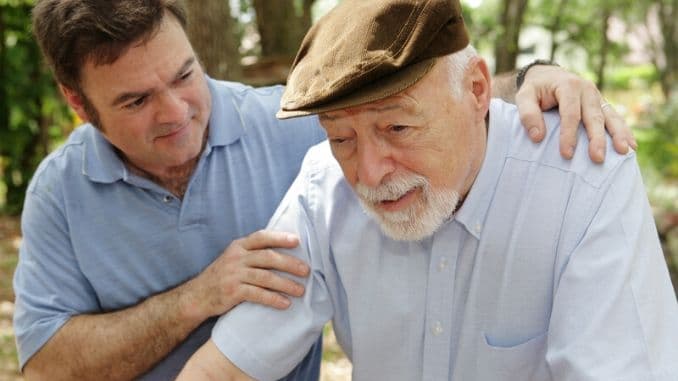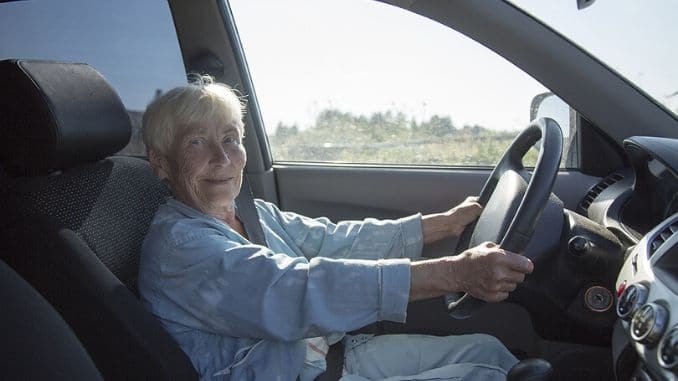
When parents, relatives or other loved ones are aging, their lives can become increasingly challenging. Aging loved ones often face a future of uncertainty. As they age and perhaps grow infirm, these individuals must rely more heavily on others to help them with their daily needs.
As our loved one’s age, it can seem like a tightrope walk to assist them with basic personal care and preserve their dignity at the same time. We recognize this struggle and have created a guide to help. Read on for some useful tips on how to preserve the dignity of your aging loved ones.
Ensure that your loved one has as much privacy as possible. Imagine for a moment that you are at home, taking care of your elimination needs in the bathroom and you realize that you need help to get up from the toilet. Needing help in the bathroom is an extremely vulnerable and uncomfortable feeling that many elderly adults experience regularly.
There are a few ways to ensure that your loved one can maintain privacy while using the restroom. The first step is to purchase a sturdy toilet safety rail so that it’s easier for the person to get up and down onto the commode. Similarly, safety rails for the shower should be installed and your loved one should have access to a walker that works well for his or her particular mobility issues.
Another item to consider is a universal bidet system. These are small and can be very easily installed beneath an existing toilet seat. Bidets like these are available for under $30 and they make it so much easier for folks of any age to rinse clean after using the restroom.
When help is still needed for delicate tasks, be as discreet as possible. Be sure to clearly communicate what you plan to do for your loved one and obtain permission before touching him or her anywhere.
Seek out a physiotherapist to help with incontinence needs. Incontinence refers to any partial or complete inability to control the bowels or bladder. Incontinence is one of the main reasons that elderly adults are put into nursing homes. Contrary to what many may think, incontinence is not a normal part of aging. It can be improved with exercises and physiotherapy. Look beyond a general practitioner and search online for a local physical therapy clinic with practitioners who have experience helping people who struggle with incontinence.
Agree whenever you can. On issues that truly don’t matter much, find ways to affirm and agree with your loved one’s views. At the very least, avoid arguing or trying to change his or her stance on an issue. Many aspects of life may be changing for your loved one. It may feel comforting for them to have an ally and confide in someone who is like-minded.
Let them help. Your aging loved one likely feels as if he or she is a burden to others. However, allowing them to help whenever it’s possible can increase their positive feelings and foster an environment of community and mutual benefit.
If your loved one is living with you, ask if he or she would be willing to fold laundry on the couch, put the stamps on your holiday cards or help with dinner preparations. Look for any small tasks that are useful and within your loved one’s ability level. It’s always nice for people to feel needed and valued for what they can contribute.
Oversee things at a distance. Be sure not to take over any responsibilities that your loved one can handle. Rather than scheduling his or her medical checkups yourself, consider bringing the phone and information to your loved one and letting him or her place the phone call. Stay in the room in case help is needed, but try to provide assistance when it’s needed and back off when it isn’t. When you aren’t quite sure that your loved one can handle the task, but there’s a good chance, stand back and observe. You can always step in to help if it’s necessary.
Ask for advice. One thing that our elderly friends and family members always have is plenty of life experiences. If you have questions about money, relationships, parenting, or your vocation, consider asking your aging loved one for his or her opinion or advice. Being able to impart wisdom is a wonderful feeling for anyone.
Encourage social contact. Many aging adults tend to stay to themselves and withdraw from social activities. While it may be tiring and seem like a hassle to help them out of the house, it’s a really good idea to encourage regular social outings. Bingo, card club, church, cross-stitch meetups, and dining out can help your aging loved one continue enjoying life and friends. For as long as it is possible, help your loved one engage in regular socialization.
Help them stay connected. Social media sites like Facebook can be a fun way for older adults to stay connected to friends and family, even when they are primarily homebound. Take the time to teach your aging loved ones how to poke around on social media and see if they can touch base with friends from high school or their old military unit. These kinds of distanced social interactions can breathe new life into people when they’re feeling lonely. Your elderly family members can also find support groups on FaceBook to help them cope with certain medical conditions or life situations.
Give them options. One of the best ways to give aging loved one more control over his or her own life is to offer choices and options at every turn. When you’re responsible for another person, it may seem difficult to slow down and offer choices. But offering these options is paramount to help your loved one maintain his or her dignity. Try not to think for them.
Here are some examples of simple ways you can offer options to your aging loved ones:
- “Would you like to ride to church in the car or the truck today?”
- “Should we have spaghetti or stir-fry for dinner tonight?”
- “Would you like to watch the news or this documentary about Syria?”
- “Do you want your chair facing the window or the fireplace?”
- “Should we paint your nails red or pink today?”
Avoid infantilizing. The terms of endearment are nice. However, there’s a fine line between a familiar nickname and treating someone like a child. Infantilizing is when you treat an adult as if he or she is a child or a baby. When you’re talking with an aging or infirm adult, it’s important not to call them names like “Honey,” or “Sweetie.” It’s also respectful to speak to them in the same tone and manner as you would speak with any other adult. When your voice is raised an octave and you slow your speech as if you’re talking with a three-year-old, it can be insulting. No one wants to be treated like a child.
Include them in conversations. Find ways to include your aging loved ones in conversations with friends and other family members. Ask their opinions on things that interest them. If there are particular time frames that they easily recall or stories that they like to share, ask them to share those stories. Go out of your way to include them and help them feel valued during social gatherings.
Help them keep their appearances up. Of course, it’s imperative to assist your loved one with any daily hygienic needs. But also remember to consider that person’s style and fashion preferences. If your elderly mother likes to wear a certain brand of lipstick and color her hair, make sure that you take her to the beauty salon and keep her stocked in the makeup she likes. If your aging loved one likes to dress nicely and keep a well-trimmed beard, help him preserve his looks. In the same way that you wouldn’t want to look into the mirror and constantly see yourself looking as if you just rolled out of bed, your aging loved ones don’t want to see themselves that way either. A simple haircut, a little bit of rouge, or a pair of fancy shoes can truly uplift the mood of an elderly person who depends on others for grooming and access to cosmetics or apparel.
Take away the car keys very gently. For most elderly adults, it’s quite difficult to give up the right to drive. Driving represents independence and provides the freedom to come and go without considering another person’s schedule. Nonetheless, when your loved one is forgetting the rules of the road or has been infrequent at-fault accidents, it’s time to have the talk and consider other options for transportation.
Be extremely considerate when you broach the subject. Your loved one may respond with anger, denial that there’s a problem or extreme sadness. This is difficult and you may experience quite a bit of push-back. While you can’t make your loved one happy about handing over the car keys, you can make alternative transportation as enjoyable as possible.
Give your loved one choices for their transportation. If there are rideshare services in your area, consider offering that as an option, rather than a bus or taxi. If it’s at all possible, enlist a family member or provide transportation yourself. Be considerate and upbeat when playing chauffeur. If your loved one likes listening to a certain talk-radio station, make sure you’ve got the dial set. It may take some time, but your loved one will adjust to being driven places and everyone will feel less anxiety about the situation.
Always remember how important it is to preserve the dignity of your aging loved ones. Taking care of an elderly parent, declining spouse or other loved one can be burdensome and energy-draining at times. However hard it is on you, know that it’s even more difficult for your loved one. Do your absolute best to treat your aging loved one with respect and dignity in every interaction and through all of the changes and struggles of growing older and losing independence. Think of how you would want to be treated if the roles were reversed.
For more information on how you can delay the signs of aging, click here.






